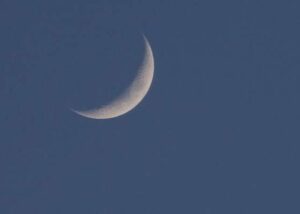What is global moon sighting? And is it true that it is the position of the Hanafi Madhab?
Quran
Hadith
Islamic Text
According to the Hanafi Madhab a global sighting is a moonsighting anywhere in the Muslim world that has been verified by the Qadi (Judge). Yes, it is true that for the beginning and end of Ramadan the Hanafi Madhab considers global sighting to be the sound opinion. Local sighting is a weak opinion in the Hanafi Madhab.
عَنْ أَبِي عُمَيْرِ بْنِ أَنَسِ بْنِ مَالِكٍ، قَالَ: حَدَّثَنِي عُمُومَتِي، مِنَ الْأَنْصَارِ مِنْ أَصْحَابِ رَسُولِ اللَّهِ صَلَّى اللهُ عَلَيْهِ وَسَلَّمَ قَالُوا: أُغْمِيَ عَلَيْنَا هِلَالُ شَوَّالٍ، فَأَصْبَحْنَا صِيَامًا، فَجَاءَ رَكْبٌ مِنْ آخِرِ النَّهَارِ، فَشَهِدُوا عِنْدَ النَّبِيِّ صَلَّى اللهُ عَلَيْهِ وَسَلَّمَ أَنَّهُمْ رَأَوُا الْهِلَالَ بِالْأَمْسِ، فَأَمَرَهُمْ رَسُولُ اللَّهِ صَلَّى اللهُ عَلَيْهِ وَسَلَّمَ أَنْ يُفْطِرُوا، وَأَنْ يَخْرُجُوا إِلَى عِيدِهِمْ مِنَ الْغَدِ
Abu Umair bin Anas bin Malik said, my paternal uncles who were among the Ansar from the Companions of the Messenger of Allah ﷺ informed me saying: ‘The new crescent of Shawwal was not visible to us, so we fasted the next day. Then some riders arrived at the end of the day and testified to the Prophet ﷺ that they had seen the new crescent moon yesterday. The Messenger of Allah ﷺ commanded them (the Sahabah) to break their fast and to go out to offer the Eid prayer the following day. (Ibn Maja 1653, Sahih).
The Hadith above is one of numerous proofs cited by the Hanafi scholars as evidence for the opinion of global sighting. The Hadith demonstrates how the Messenger of Allah ﷺ accepted a sighting from further away, even though the moon was not citing locally, in and around Madinah Sharif. Therefore the Hanafi scholars considered this to be a proof against local sighting and for global sighting.
Global sighting is the position of the Hanafi Madhab for the beginning of Ramadan and the Eid al-Fitr. The classical works of the Hanafi Madhab are clear on this.
وَظَاهِرُ الرِّوَايَةِ الثَّانِي وَهُوَ الْمُعْتَمَدُ عِنْدَنَا وَعِنْدَ الْمَالِكِيَّةِ وَالْحَنَابِلَةِ لِتَعَلُّقِ الْخِطَابِ عَمَلًا بِمُطْلَقِ الرُّؤْيَةِ فِي حَدِيثِ «صُومُوا لِرُؤْيَتِهِ» بِخِلَافِ أَوْقَاتِ الصَّلَوَاتِ. (رد المحتار على الدر المختار)
Dhahir al-Riwayah (the strongest narration) is the second (global sighting). It is the relied upon opinion with us (the Hanafi scholars), the Malikis and the Hanbalis. This is due to the fact that the address in the Hadith, ‘Fast upon its sighting,’ is general in terms of sighting (not addressing a specific locality, thus addressing all Muslims). As opposed to prayer times (where every locality has its own timing). (Imam Ibn Abideen, Radd al-Muhtaar).
In the Nass (text) above, Imam Ibn Abideen not only presents the sound opinion in the Hanafi Madhab as global sighting, but he also mentions another proof. The Hadith, ‘Fast upon its sighting,’ is in Sahih al-Bukhari (1909). It is often cited as a proof for the position of global sighting. This is due to the fact that the Hadith is general and does not specify. The Hadith addresses all Muslims saying fast when it is seen. So it does not leave room for the possibility of each locality establishing a seperate sighting.
Imam Ibn Abideen goes further to clarify that this is not similar to prayer times. With prayer times everyone does establish the timing based on their locality. It is important not to conflate legal issues. Each issue has its own evidence and should be analysed according to that evidence. Many other Hanafi scholars have explicitly mentioned that global sighting is the sound opinion in the Hanafi Madhab.
وَإِذَا ثَبَتَ فِي مِصْرَ لَزِمَ سَائِرَ النَّاسِ فَيَلْزَمُ أَهْلَ الْمَشْرِقِ بِرُؤْيَةِ أَهْلِ الْمَغْرِبِ فِي ظَاهِرِ الْمَذْهَبِ وَقِيلَ: يَخْتَلِفُ بِاخْتِلَافِ الْمَطَالِعِ. (فتح القدير)
If it (moonsighting) is established in one city then it is binding upon all people. Therefore, the people of the East are obliged to follow the sighting of the people of the West, according to the soundest position in the Madhab. And it has been said (in a weak opinion) that it differs based on region. (Imam Ibn Humaam, Fath al-Qadeer commentary of al-Hidaayah).
(فَإِذَا ثَبَتَ فِي بَلَدٍ لَزِمَ جَمِيعَ النَّاسِ، وَلَا اعْتِبَارَ بِاخْتِلَافِ الْمَطَالِعِ) هَكَذَا ذَكَرَهُ قَاضِيخَانُ. قَالَ: وَهُوَ ظَاهِرُ الرِّوَايَةِ، وَنَقَلَهُ عَنْ شَمْسِ الْأَئِمَّةِ السَّرْخَسِيِّ ; وَقِيلَ: يَخْتَلِفُ بِاخْتِلَافِ الْمَطَالِعِ. (الاختيار لتعليل المختار)
So if it (moonsighting) is established in one city then it is binding upon all people. And no consideration is given to the differing of regions. This was mentioned by Qadikhan. And he said, this is the strongest narration (Dhahir al-Riwayah). He narrated it from Sham al-Aimah al-Sarakhsi. And it has been said (in a weak opinion) that it differs based on region. (Imam al-Mowsili, al-Ikhtiyaar).
واذا ثبت في مطلع قطر: لزم سائر الناس في ظاهر المذهب وعليه الفتوى. (نور الإيضاح)
If it (moonsighting) is established in a particular region then it is binding upon all people according to the apparent of the Madhab (Dhahir al-Madhab) and upon it is the Fatwa. (Imam al-Shurunbulali, Noor al-Idaah).
لزم سائر الناس في ظاهر المذهب وعليه الفتوى” وهو قول أكثر المشايخ فيلزم قضاء يوم على أهل بلدة صاموا تسعة وعشرين يوما لعموم الخطاب: “صوموا لرؤيته” وقيل يختلف ثبوته باختلاف المطالع واختاره صاحب التجريد. (مراقي الفلاح شرح متن نور الإيضاح)
Then it is binding upon all people according to the apparent of the Madhab (Dhahir al-Madhab) and upon it is the Fatwa. This is the opinion of most of the scholars. Therefore it is required for people who fasted 29 days to make up a day. This is due to the fact that the address (in the Hadith), ‘Fast upon its sighting,’ is general (not addressing a specific locality, thus addressing all Muslims). And it has been said (in a weak opinion) that it differs based on region. This opinion was preferred by the author of al-Tajreed. (Imam al-Shurunbulali, Maraaqi al-Falaah).
وَلَا عِبْرَةَ لِاخْتِلَافِ الْمَطَالِعِ فِي ظَاهِرِ الرِّوَايَةِ كَذَا فِي فَتَاوَى قَاضِي خَانْ. وَعَلَيْهِ فَتْوَى الْفَقِيهِ أَبِي اللَّيْثِ وَبِهِ كَانَ يُفْتِي شَمْسُ الْأَئِمَّةِ الْحَلْوَانِيُّ قَالَ لَوْ رَأَى أَهْلُ مَغْرِبٍ هِلَالَ رَمَضَانَ يَجِبُ الصَّوْمُ عَلَى أَهْلِ مَشْرِقٍ كَذَا فِي الْخُلَاصَةِ. (الفتاوى الهندية)
No consideration is given to the differing of regions according to the strongest narration (Dhahir al-Riwayah) as mentioned in Fatawaa of Qadikhan. And upon it is the Fatwa of al-Faqhi Abi al-Layth. Sham al-Aimah al-Halwani used to give Fatwa upon it (too). He said if the people of the West saw the crescent moon of Ramadan it becomes obligatory upon the people of the East to fast. This was mentioned in al-Khulasah. (al-Fatawaa al-Hindiyah).
As we see in the Nusoos (texts) above there is some difference of opinion regarding global and local sighting. However, it is clear that the sound opinion in the Hanafi Madhab is that of global sighting. Imam Ibn Abideen went further and said this is also the opinion of the Maliki and Hanbali Madhab.
I have provided some proof for the Hanafi position of global sighting. That does not mean that local sighting, which is the Shafi position, has no proof. Rather we believe that all four Madhabs within Ahl al-Sunnah are credible and supported by evidence. Undoubtedly ,the Shafi scholars will be able to provide evidence for the Shafi position. This is why we consider all four Madhabs to be acceptable and trustworthy as Sunni Muslims.
And Allah Most High Knows Best.
-Answered by Shaykh Noorud-deen Rashid (28.04.2022)
See also:
How long is an Islamic Month?
Can astronomical calculations be used for moonsighting?
How to respect difference of opinion?
See also video:






